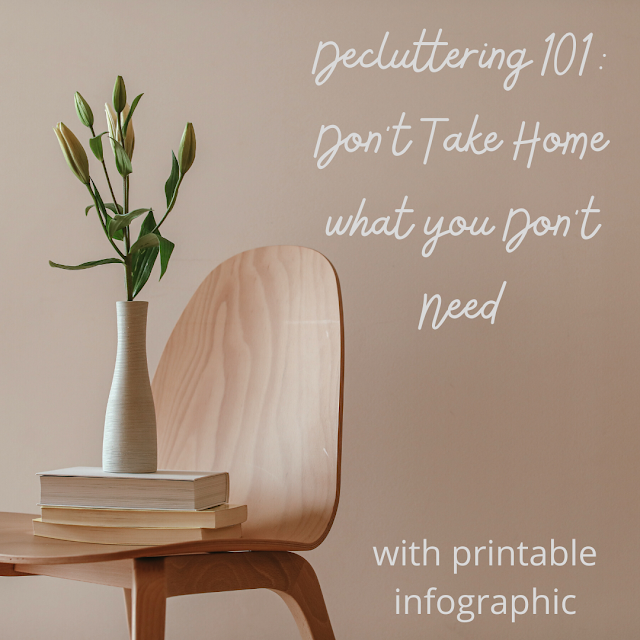Decluttering isn't easy. Trust me when I say it, because it's a daily struggle at our house. We've been living here for many years, we have a lot of memories from when our kids were babies, we took on a lot of things that came from my mother's and my grandparents' homes, and although we do have a large apartment, it always feels way to crowded.
For years I have been trying to let go of stuff - and I'm doing a lot better. But I have found that one of the best things to do is just to avoid bringing more clutter home. And so I have laid down a few rules that if even if may not help reducing clutter all by themselves, they at least keep us from getting even more clutter than what we already own.
Read more about them below - or just download the infographic for a quick overview.
Is it going to replace something you already own?
If yes, then great. You are replacing one item for another, so you won't be adding clutter. Just make sure, of course, that you toss or donate whatever it is you are replacing in the first place. Don't save it for a what if. Don't keep it thinking you will fix it one day and use it again. If you're buying something to replace it, what are the chances you'll actually use it again?
This strategy works for anything you want to buy - from home items to clothes, and it's really the best way to make sure your closets, cabinets and drawers aren't full of things you don't use.
Do you REALLY need it?
If it's a brand new item and not replacing anything, then ask yourself if you really need it. If the answer is yes and you're still intent on decluttering, then try to find something else at home that you can get rid of, to keep the ratio of one-in-one-out.
When in doubt, don't buy it. Think about it at least for a couple of days, to make sure it isn't just an impulse buy.
Are you REALLY going to use it?
Now that you decided you need it, ask yourself if this is going to be a maybe-one day-just in case need or something you are really going to use in the short term or on a daily basis. Because if it's a long term thing, might as well leave it at the store instead of having it take space at home - odds are, in a couple of months you will probably not remember you bought it in the first place.
This is a question I've posing myself a lot lately in relation to, for example, craft supplies. I have a closet full of them already and since my Etsy Shop is currently dedicated only to digital items, my sewing and crafting is now limited to the things we use around the house and to gifts for friends and family. So when I see something new, instead of buying it just in case someday I want to make something with it, now I need to make sure it's something I really have a use for in the short term.
Do you have a place for it?
The worst thing you can do is to bring home things you have no place for. Those people who live in tiny homes only own the essential because their space is very limited.
The bigger your home is, the more you tend to fill it with stuff unless you impose some discipline.
If you are replacing an item, you will for sure have a place for what you're buying. But if not and your answer was still yes to the two other questions above (it's something you need and you are going to use), then you still should make sure it has a place to go.
If everything else fails, find something else at home you are no longer using or that you don't need, get rid of it, and use the space for the new things you are buying.
Below you can find an infographic will all this summarised. Click over the image (or here) to download it in pdf format if you prefer:
Now start putting these tips into practice and actively declutter your life!






No comments:
Post a Comment